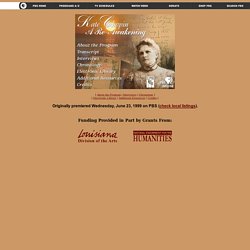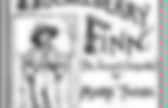

The Andrea Dworkin Online Library Catalog. Joyce Carol Oates: en littérature, il n’existe pas une voix mais un œil féminin. Pour dire l’importance du langage, cette phrase de Camus revient souvent: «Mal nommer un objet, c'est ajouter au malheur de ce monde.»

Camus ne faisait que reprendre une idée de Platon: dans le Phédon, Socrate disait ainsi à Criton «Sache bien en effet, qu’un langage impropre n’est pas seulement défectueux en soi, mais qu’il fait encore du mal aux âmes». publicité C’est précisément de ça, du langage et des âmes, que parle Joyce Carol Oates dans son dernier roman, Mudwoman, sorti en France le 3 octobre chez Philippe Rey. Quand je l’ai rencontrée en juin dernier à Paris, j’ai mentionné le Phédon. Sa réponse: «Platon avait une idée simpliste de la linguistique. 'Maus' d'Art Spiegelman: biographie familiale puisque l’auteur a recueilli les souvenirs de son père ; survivant de la Shoah. Résumé des albums Maus est un récit autobiographique qui alterne deux époques : les années 1980, les années pendant lesquelles Art Spiegelman écrit son livre et les années 1930-1940 avec les témoignages bouleversants du passé de sa famille et la vie personnelle de Vladek, son père.
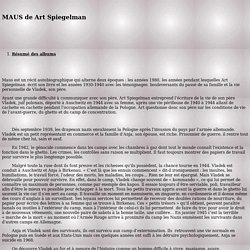
Percival Everett by Rone Shavers. All images courtesy Percival Everett.
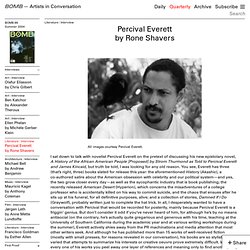
I sat down to talk with novelist Percival Everett on the pretext of discussing his new epistolary novel, A History of the African American People [Proposed] by Strom Thurmond as Told to Percival Everett and James Kincaid, but truth be told, I was looking for any old reason. You see, Everett has three (that’s right, three) books slated for release this year: the aforementioned History (Akashic), a co-authored satire about the American obsession with celebrity and our political system—and yes, the two grow closer every day—as well as the sycophantic industry that is book publishing; the recently released American Desert (Hyperion), which concerns the misadventures of a college professor who is accidentally killed on his way to commit suicide, and the chaos that ensues after he sits up at his funeral, for all definitive purposes, alive; and a collection of stories, Damned If I Do (Graywolf), probably written just to complete the hat trick.
RS Why? The Appropriation of Cultures ~ Percival Everett. 'Erasure' (P.Everett): parodie & ironie (SSA) This article examines the ways in which Percival Everett’s critique of identity politics is facilitated by his use of parody and irony in Erasure (2001). Everett’s protagonist, Thelonious Ellison, is an African-American academic and writer who composes a parody of the stereotypically ‘black’ contemporary novel out of disgust at the excessively limited scope of what the commercially-oriented publishing world deems acceptable for literature by African-American writers.
As Erasure unfolds, however, Ellison becomes increasingly trapped in the representations and realities of the ‘black’ experience which his novel Fuck sought to parody. By the end of the book, Ellison’s idiolect and conduct ironically echoes and replicates that of the protagonist of Fuck, Van Go Jenkins. Percival Everett thereby underlines the inescapability of stereotypical images and categorisations of African-Americans in the commercially-oriented US culture industry.
Behold the invisible! Max Klinger: What do you mean? 'The Birthmark' - Nathaniel Hawthorne. In the latter part of the last century there lived a man of science, an eminent proficient in every branch of natural philosophy, who not long before our story opens had made experience of a spiritual affinity more attractive than any chemical one.
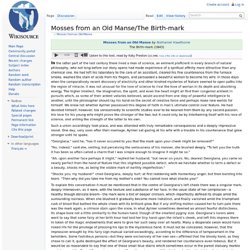
He had left his laboratory to the care of an assistant, cleared his fine countenance from the furnace smoke, washed the stain of acids from his fingers, and persuaded a beautiful woman to become his wife. In those days when the comparatively recent discovery of electricity and other kindred mysteries of Nature seemed to open paths into the region of miracle, it was not unusual for the love of science to rival the love of woman in its depth and absorbing energy. Such a union accordingly took place, and was attended with truly remarkable consequences and a deeply impressive moral. Reading Selections From Flannery O’Connor’s Spiritual Writings by Robert Ellsberg (Editor) « Paying Attention To The Sky. Flannery O'Connor Flannery O Connor (1925-1964) is widely regarded as one of the great American writers of the twentieth century.
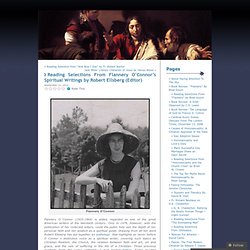
Only in 1979, however, with the publication of her collected letters, could the public fully see the depth of her personal faith and her wisdom as a spiritual guide. Drawing from all her work Robert Ellsberg has put together an anthology that highlights as never before O Connor s distinctive voice as a spiritual writer, covering such topics as Christian Realism, the Church, the relation between faith and art, sin and grace, and the role of suffering in the life of a Christian. Three previous readings from the same anthology I had posted before. Some reading selections follow: Flannery O'Connor and Sin. Aquinas Center of Theology at Emory University. 2013 Lectures The Flannery O’Connor Second Annual Lecture was a great success with 100% and 97% rating the lectures excellent on its two evenings.
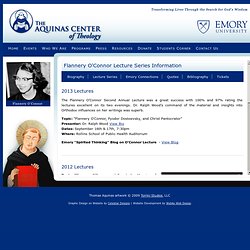
Dr. Flannery O’Connor: The Cartoons. Mary Flannery O’Connor was born in Savannah, Georgia, on March 25, 1925.
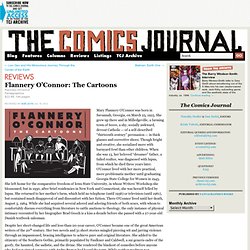
She grew up there and in Milledgeville, a farming town of 6000, a shy, socially awkward, devout Catholic — of a self-described “thirteenth century” persuasion — in thick glasses and corrective shoes. Though bright and creative, she socialized more with barnyard fowl than other children. Flannery O’Connor on Freaks in the Christ-haunted South. Inescapable Jesus. Flannery O’Connor’s Inescapable Jesus.
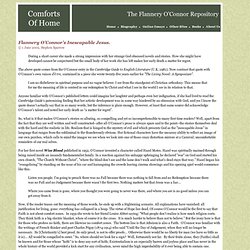
. © 1 June 2002, Stephen Sparrow During a short career she made a strong impression with her strange God obsessed novels and stories. How she might have developed cannot be conjectured but the small body of her work she has left makes her early death a matter for regret. The above quote comes from the O’Connor entry in the Cambridge Guide to English Literature (U.K.:1981). I am no disbeliever in spiritual purpose and no vague believer. Anyone familiar with O’Connor’s published letters could imagine her laughter and perhaps even her indignation, if she had lived to read the Cambridge Guide’s patronising finding that her artistic development was in some way hindered by an obsession with God, and yes I know the quote doesn’t actually say that in so many words, but the inference is plain enough.
Edgar Allan Poe Society of Baltimore - The Life and Writings of Edgar Allan Poe. Charlotte Perkins Gilman. Gilman, If I Were A Man. Kate Chopin: A Re-Awakening. [ About the Program | Interviews | Chronology ] [ Electronic Library | Additional Resources | Credits ]
